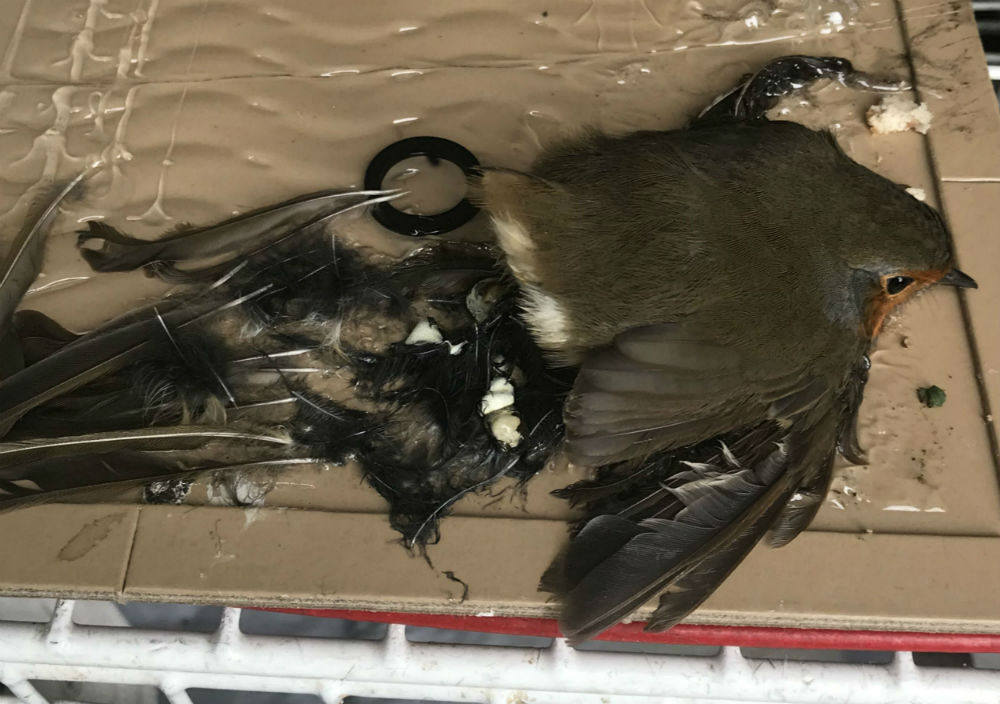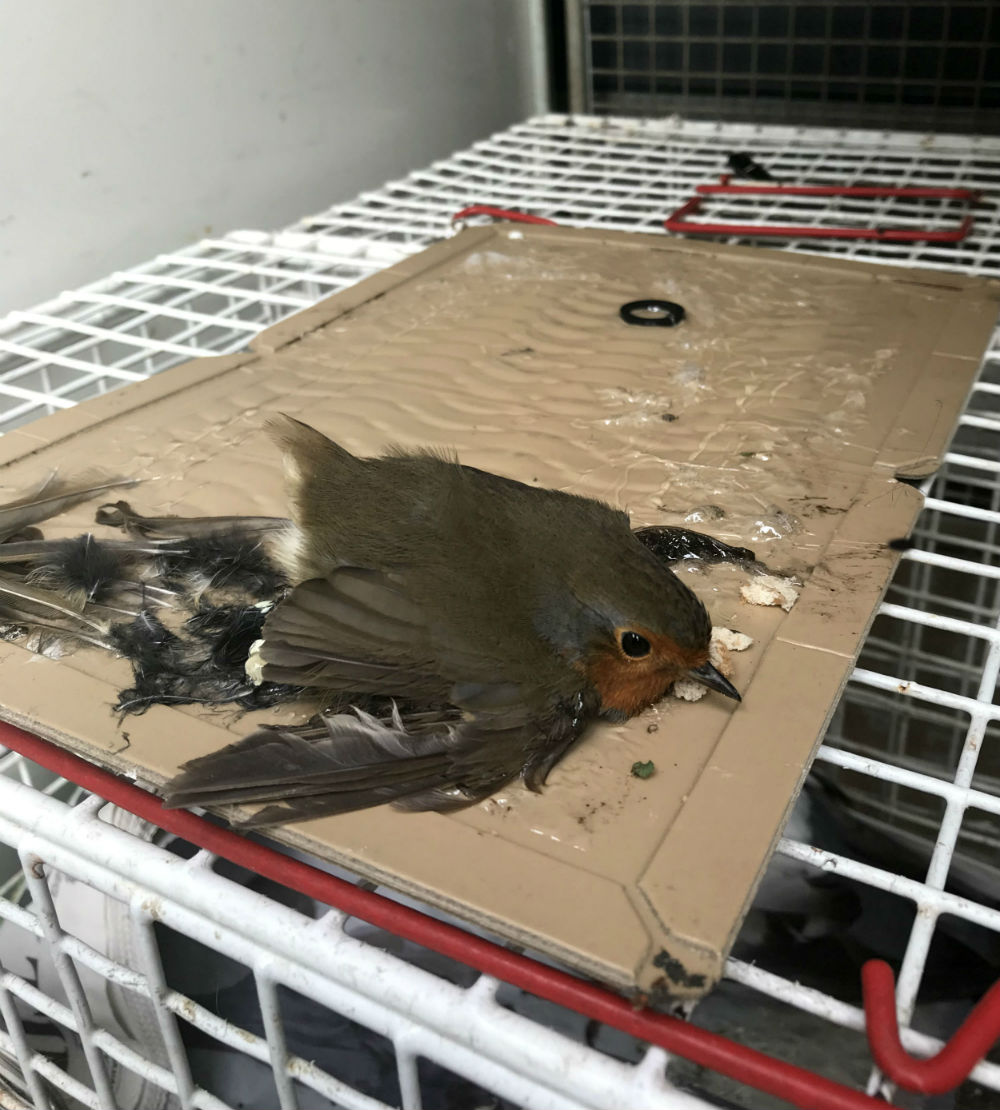HEARTBREAKING images show how a helpless robin broke its legs trying to free itself after getting stuck on an “inhumane” glue trap.
The poor bird was found thrashing around trying to frantically unstick itself free on the cruel trap in Levenshulme in Manchester.
The red breasted bird was so distressed it broke both its legs and damaged its wings trying to escape after getting stuck last Thursday.
Sadly RSPCA animal rescuers had to put the injured bird to sleep as it was in so much pain and the charity is warning against the dangers of glue traps, which are normally used to catch rodents.

The RSPCA images show the injured bird lying flat against a large cardboard makeshift glue board, while it was still alive.
The bird’s left wing can be seen completely mangled to the glue and some feathers can be seen completely detached from the robin’s body.
It also appears to be lying in its own excrement and waste.
Inspector Paul Heaton said: “When I attended the scene I could tell the bird was in a suffering state and realised both of its legs were broken, which would have been from trying to free itself from the trap.

“The wings and feathers were also stuck to the glue and were badly damaged.
“Robins are such beautiful birds and it was so sad to see this one in such a state – it must have suffered terribly.
“I find the use of glue traps horrendous. People sometimes use them to deal with problems caused by animals like rats and mice but they are cruel and cause awful suffering.
“Other animals also become victims – in this case a robin – but a pet cat could have also easily been trapped too and would have also endured terrible suffering.
“If anyone knows who put this trap down I would urge them to contact the RSPCA appeals line on 0300 123 8018.”
The RSPCA’s scientific officer, Evie Button, added: “We’re opposed to the manufacture, sale and use of all glue traps because they cause unacceptable suffering and are totally indiscriminate in what they catch, ensnaring wild animals like birds and even pets.
“Glue traps may seem like an effective way to catch rodents without killing them, but they come with very serious welfare issues and subject those animals unfortunate enough to get caught to horrific suffering.
“Even the way they’re designed to catch animals – by sticking their limbs to the board as they cross it – inflicts pain and distress.
“Once the poor animal is stuck, they begin to struggle to free themselves, and in doing so, more and more parts of their body become trapped in the glue.
“In their increasing panic and desperation to escape, rats and mice have been found to tear patches of their fur out, break bones, and even gnaw their own limbs off in a bid to be free.
“After only three to five hours, trapped animals have been found exhausted and covered in their own faeces and urine.
“Many animals die within the first 24 hours from starvation, dehydration, exhaustion, or even suffocation – caused by the glue blocking their nasal passages.
“But many continue to suffer for long after that.”
The RSPCA shared the distressing images on their Facebook pages – attracting thousands of comments from animal lovers.
Sharon Wood wrote: “Aww that’s awful, poor little Robin, there the sweetest of birds too, angels! That’s so sad! Heartbreaking, RIP little Robin.”
Steph Elaine Richardson said: “Heartbreaking r.i.p beautiful bird.
“Why are these traps not against the law cruel way for any animal to suffer must have been so scared.”
And Rhiannon Fryer wrote: “I’m so angry and heartbroken.
“I love robins, they are wonderful creatures.
“How dare someone buy something as horrible as this! They should be ashamed right now! Poor robin.”
The RSPCA has backed a petition asking that glue traps are made illegal which has attracted over 51,000 signatures.
Robins’ only have a lifespan of around 13 months on average due to high mortality among robins in their first year.
They have been associated with Christmas ever since Victorian times.
Victorian postmen – who were known as ‘Robin Red-breasts’ due to their scarlet waistcoats – are thought to be the inspiration robins appearing on Christmas cards.

